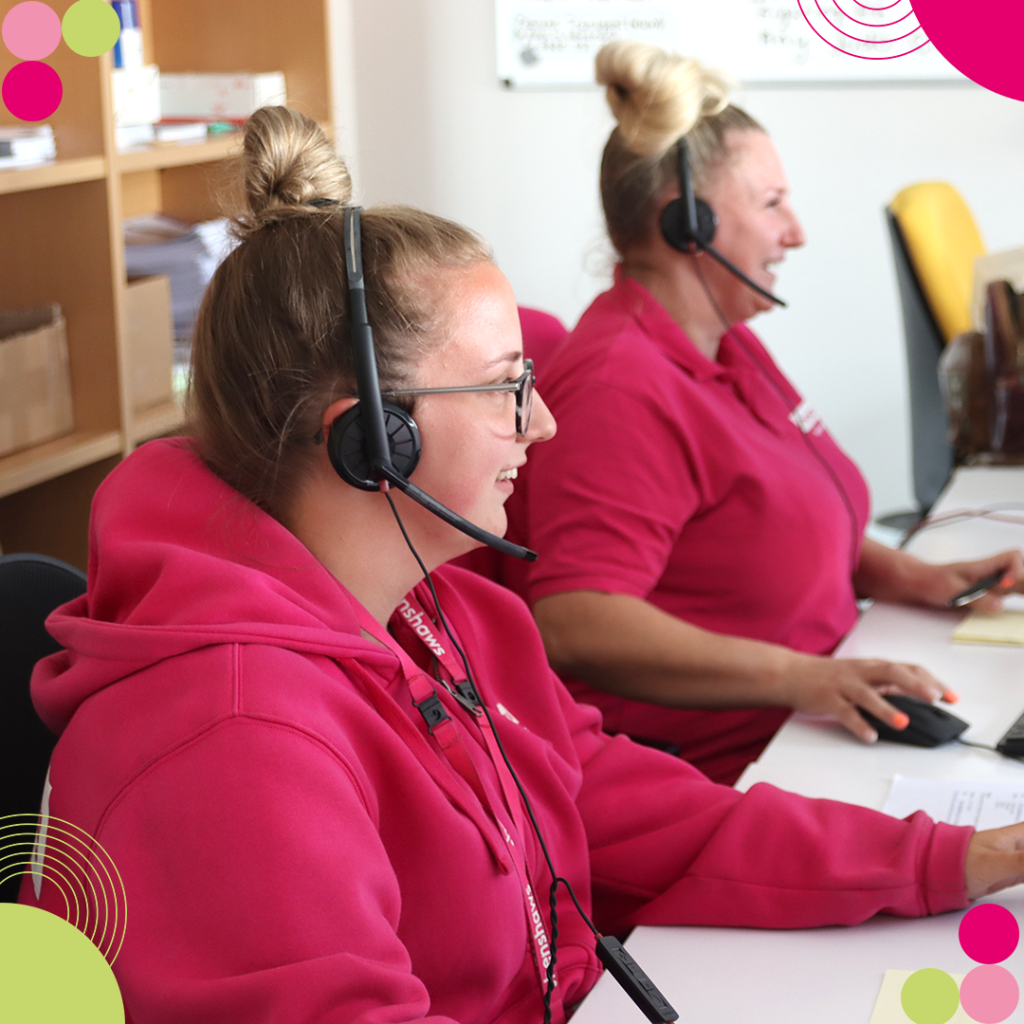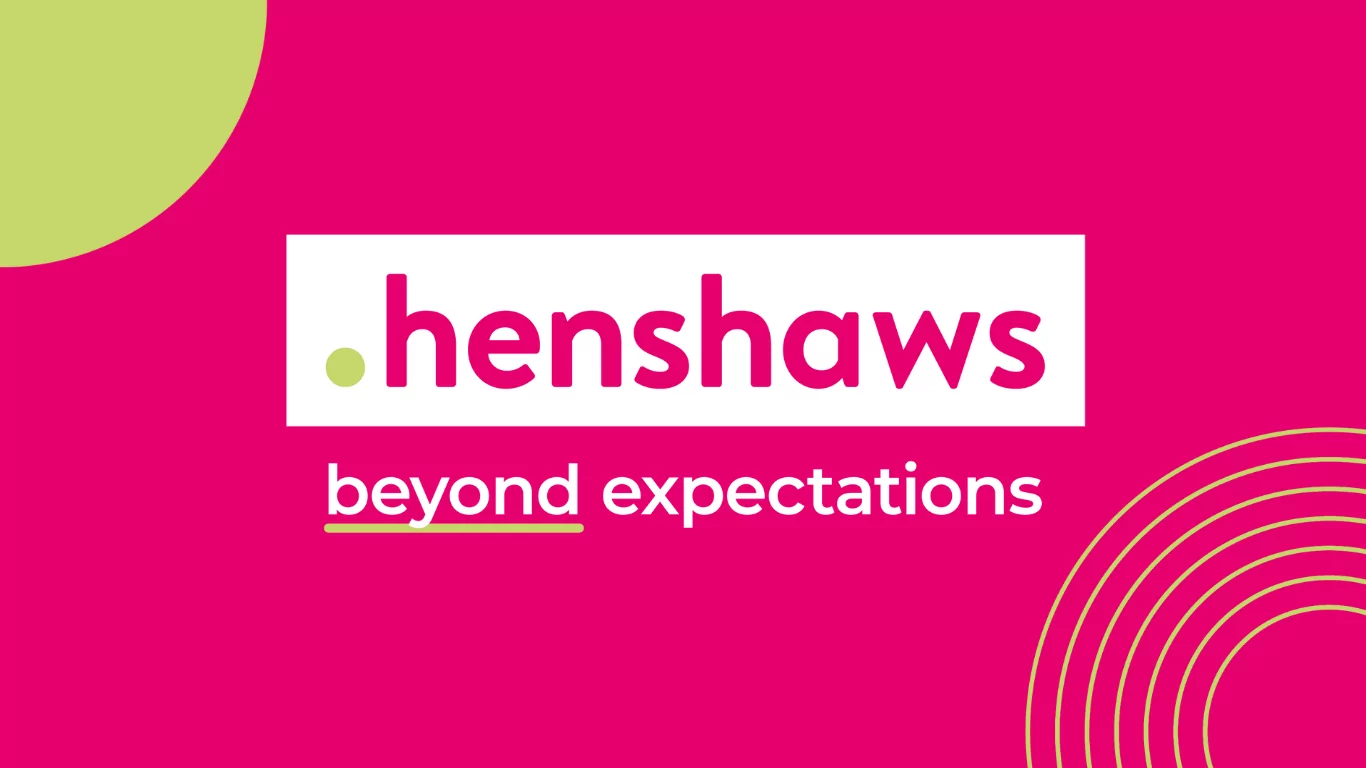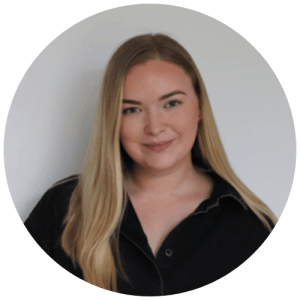Guest Blogs: How Henshaws is Tackling Health Inequalities & Empowering Communities through Prevention
We spoke to Simon Merrills on an average day at Henshaws about the work he does, and how Henshaws is playing its part in reducing health inequalities in Greater Manchester.
This guest blog is part of a series where we’re looking at the role of the VCSE sector as a champion of community-led prevention work in Greater Manchester.
Could you introduce yourself, your role and your organisation?
Hello, my name is Simon Merrills. I’m the Head of First Steps at Henshaws. Henshaws is a Greater Manchester Sight Loss Charity. We have been supporting people with sight loss for over 185 years. We work with people of all ages, both children and adults, living with sight loss and a range of other disabilities. We aim to empower them to take steps to change their lives for the better, with independence and friendship being at the heart of everything we do.
Tell us about the work you do, what does an average day look like?
I manage all the teams that are the first point of contact for people new to sight loss, or are returning to Henshaws for ongoing sight loss support. The First Steps Team is here to support with information, advice, and guidance. They answer calls and emails, and work with our online referral system to make sure we reach the people who need Henshaws support. The team work with a person to ensure the support is just what they need, timely and relevant to their individual situation and sight loss.
For example, someone is on the phone right now finding out about our digital enablement service; they want to be able to access their smartphone without sight. They are also considering some counselling specifically for their sight loss.
We have an online enquiry just come in too. This is from a professional referring a person into our service. They would like a personal plan from one of our specialist enablement officers. This will be a full plan of support devised by the person and the enablement officer, possibly including our Living Well With Sight Loss course.
Another call has just come in. It’s for our Children, Young people and Families (CYPF) service. The team will do the initial triage, and then our specialist CYP team will take over supporting the child or young person, and in many cases the family too. This parent has heard about one of our residential courses and would like some information. These courses are designed to build independence and confidence and are very popular.

Once the initial rush calms down, we make outbound calls; we like to be proactive and make it as easy as possible for people to access the support they need. We have a great partnership with Manchester Royal Eye Hospital (MREH), Stepping Hill and Optegra Stockport. Every patient that is issued a Certificate of vision impairment (CVI) receives follow up calls from Henshaws at 1, 3, 6 and 12 months. We call to ensure the patient has accessed all the support they may need, and if not we will make the relevant referrals. We know that only a 1/3 of patients will take up an offer from a leaflet or information given to them, so we need to be proactive in the early stages to connect people to the support available.
We also have Eye Clinic Liaison Officers (ECLO) in Manchester Royal Eye Hospital (MREH), Altrincham Hospital and part of a Stockport Community Stroke pilot. The ECLOs talk to people in the hospital and provide a link from the medical setting to the social setting, often making multiple referrals to Henshaws wider offer. If we don’t offer the service, we will make every effort to find someone who does.
Hospital appointments can be quite challenging; we are able to support patients in appointments in some cases, and help people come to terms with what is going on. All the Henshaws teams will offer emotional support at any appointment; we understand the emotional impact and offer support where we can.
Amongst all this work, Henshaws are keen to keep good records. We analyse our data and make sure our services are relevant to what our service users need.
That’s my next job today. I’m working on a new social gathering we have co-produced with an initial consultation of over 1000 people, then a working group of 30, and then a smaller working party, to create a service that is needed as described and designed by the people who will access and guide the new offer.
How can people get involved? Help us to understand the communities you work with.
We welcome people of all ages and from all communities to our Pathway to Independence, be it people living with sight loss, their family and friends and the professionals that support them. People can access any of our services by calling our First Steps number: 0300 222 5555, or by accessing our online referral form: https://www.henshaws.org.uk/sight-loss-support-team/referral-form/ . We are always looking for volunteers and our vacancies are all listed on the Henshaws website.
What does ‘community-led’ mean to you?
We are constantly looking for inspiration from the community and the people we support. Our co-production strategy ensures we create services in line with the needs of the community we support, ensuring a steady evolution of services. We work hard to enable wider communities to support people with sight loss, helping to reduce the barriers faced by people with sight loss.
Looking forward – what do you think we need to do to strengthen the capacity and capability of the VCSE sector in Greater Manchester to be able to tackle health inequalities?
To tackle health inequalities in the sight loss sector in Greater Manchester, we must strengthen the VCSE sector by enhancing collaboration with the NHS, local authorities, and private sector partners. Secure sustainable funding and diversify income sources for long-term stability. Invest in training for staff and volunteers in assistive technology and accessibility. Use data to drive evidence-based practices and influence policy. Promote innovation in assistive technologies and adapt services to meet changing needs. Engage underrepresented communities with culturally competent services and prioritise mental health support and social inclusion for individuals with sight loss to ensure equitable care. Include VCSEs in your planning and asset management plans and consider them as a resource to work with to optimise results.
What would your message to commissioners be?
It’s crucial to view the VCSE sector and volunteers as integral partners, similar to professional businesses or consultants you would engage elsewhere. Foster strategic collaborations with these organisations to leverage their expertise and community connections. Secure sustainable funding to support their innovative services and empower them with resources. Utilise our insights to drive data-driven approaches and our ability to reengage underrepresented communities with culturally competent care. By recognising the VCSE sector as a key resource, we can significantly improve outcomes for those with sight loss and have proven impact results that we can share.

We’re looking for contributors to our blog! If you’d like to share your experience of community-led prevention work in the VCSE sector across Greater Manchester and how this has supported your community, please contact [email protected]
Read more blogs

10GM blog: Championing Community-Led Prevention:
The Role of the VCSE Sector in Greater Manchester
This is the first of a series of blogs where Sarah Hudson, 10GM Project Manager (Population Health), looks at the role of the VCSE sector as a champion of community-led prevention work in Greater Manchester. In her role, Sarah works on various projects and programmes to scale up and embed the VCSE sector as a strategic partner and provider of services in Greater Manchester’s Population Health system.
